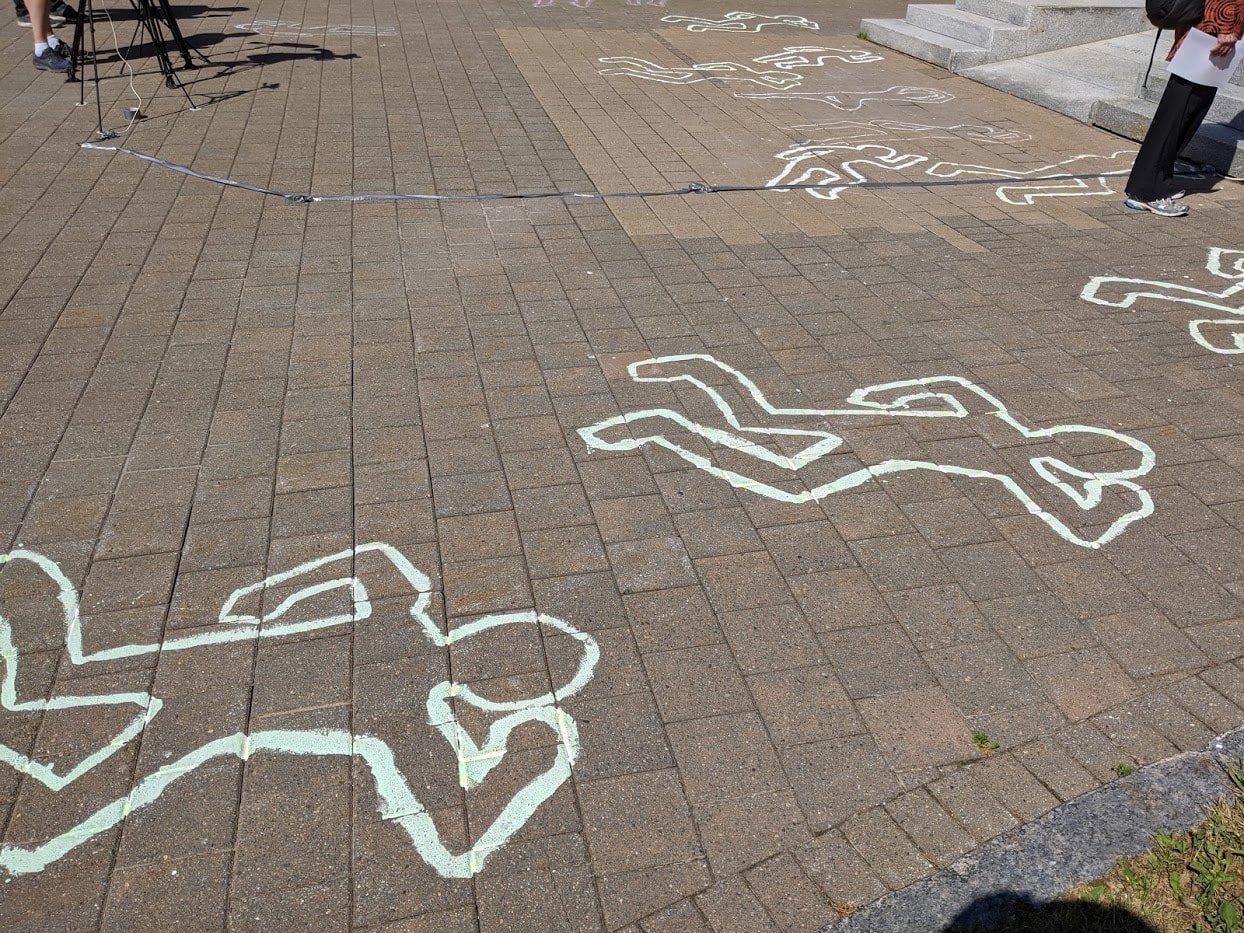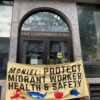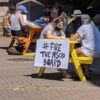KJIPUKTUK (Halifax) – A good–sized crowd gathered this morning for a ceremony at the Grand Parade to commemorate the 75th anniversary of the nuclear annihilation of the Japanese city of Hiroshima on August 6, 1945.
That attack, together with the dropping of a second nuclear bomb on Nagasaki three days later, killed between 129,000 and 226,000 people, most of whom were civilians, many of them children. The horror of these war crimes is hard to fathom. Even harder to fathom is that this nuclear threat continues to exist.
Earlier this year Halifax Council, at the initiative of councillor Richard Zurawski, passed a motion to support the International Campaign to Abolish Nuclear Weapons (ICAN) Cities Appeal. In doing so Halifax joined 300 municipalities around the world. Canadian municipalities that have signed on include the Cape Breton Regional Municipality, Vancouver, Victoria and Toronto.
The motion declared today, August 6, a Day of Peace, and asked Mayor Savage to write a letter to Prime Minister Trudeau urging the federal government to sign and ratify the United Nations Treaty on the Prohibition of Nuclear Weapons.
Just for the record, councillors Bill Karsten, Tony Mancini, Russell Walker, Stephen Adams, and Matt Whitman opposed the writing of such a letter.
The nuclear weapons ban treaty was created in 2017 by the United Nations General Assembly and adopted immediately by 122 nations, which represents more than three fifths of the world’s countries. It is now signed by 82 countries and ratified by 40. When ratified by 50, this treaty will become international law. Unfortunately, so far Canada has not been involved in any of these steps despite the fact that the vast majority of Canadians support the elimination of nuclear weapons, said Dr Nancy Covington, of the International Physicians for the Prevention of Nuclear War Canada.
Zurawski was among the speakers at the event, as was councillor and deputy mayor Lisa Blackburn, and Thomas Trappenburg, chair of the Hakodate – Halifax Friendship Association. Hundreds of civilians died in 1945 US air raids on Hakodate. Long time peace activist and musician Sandy Greenberg sang some rousing peace songs.
“I’d like to go back to a day very similar to this. It was August 6 1945. Imagine you’re in a beautiful city. People going about their business walking, cycling, talking, laughing, playing. It is a time of war, but everything seems so normal. The sun is shining. It’s a beautiful day. Hiroshima was a city so similar to Halifax in 1945 that it is frightening,” Zurawski said.
“Now I want you to look up and listen. You can hear the drone of a plane 30,000 feet above the city, and it very quietly moves in. Next there is a blinding flash, and for an instant, there are twin suns in the sky. The summer day, the summer heat becomes unbelievably deadly. Then comes the devastation. In an instant sons, daughters, mothers and fathers are all incinerated, vaporized, no more, which is what these chalk outlines represent. That’s all that was left of them.”

The event was organized by the Nova Scotia Voice of Women for Peace and International Physicians for the Prevention of Nuclear War Canada.
See also: Photo view: Remembering all victims of war at Point Pleasant Park
With a special thanks to our generous donors who make publication of the Nova Scotia Advocate possible.
Subscribe to the Nova Scotia Advocate weekly digest and never miss an article again. It’s free!



